November 2023 Dante Seattle La Voce
|
|
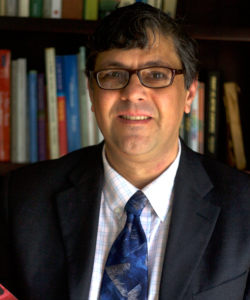 Giuseppe Tassone moved to Seattle from Italy in 1993. He has been the director of the Italian Language Program of the Dante Alighieri Society of Washington since 1998 and the PLIDA coordinator since 2011. He is a language educator, coordinator, and advocate of Italian language and culture. He has a background in economics and finance (B.A. in Economics), but chooses to specialize in Italian language and culture (M.A. in Italian Studies). He has 20+ years of experience teaching, developing curricula, coordinating, testing, and assessing in public and non-profit organizations (e.g. Seattle University, University of Washington, Shoreline College). Giuseppe reviewed and/or contributed to several Italian language textbooks, such as Da Capo, Oggi in Italia, Avanti, Piazza and Sentieri. He is the author of Ricordati di me, Buongiorno Notte – Italian Films Series by Edizioni Farinelli and Un buon Affare – Italian for Business by Hackett Publishing Company available in print (2016) and e-book (2019). Giuseppe teaches at Seattle University and heads the Italian Section in the Department of Modern Languages and Cultures. Personal interests are: reading, traveling, cinema, economics, politics, playing and listening to music, swimming, biking, gardening and cooking.
Giuseppe Tassone moved to Seattle from Italy in 1993. He has been the director of the Italian Language Program of the Dante Alighieri Society of Washington since 1998 and the PLIDA coordinator since 2011. He is a language educator, coordinator, and advocate of Italian language and culture. He has a background in economics and finance (B.A. in Economics), but chooses to specialize in Italian language and culture (M.A. in Italian Studies). He has 20+ years of experience teaching, developing curricula, coordinating, testing, and assessing in public and non-profit organizations (e.g. Seattle University, University of Washington, Shoreline College). Giuseppe reviewed and/or contributed to several Italian language textbooks, such as Da Capo, Oggi in Italia, Avanti, Piazza and Sentieri. He is the author of Ricordati di me, Buongiorno Notte – Italian Films Series by Edizioni Farinelli and Un buon Affare – Italian for Business by Hackett Publishing Company available in print (2016) and e-book (2019). Giuseppe teaches at Seattle University and heads the Italian Section in the Department of Modern Languages and Cultures. Personal interests are: reading, traveling, cinema, economics, politics, playing and listening to music, swimming, biking, gardening and cooking.
E-mail: tassone@danteseattle.org
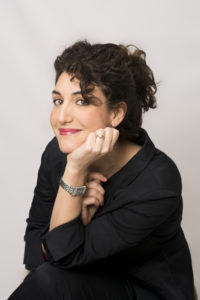 Roberta was born in Salerno a city located in the region of Campania in Southern Italy where in the ninth century flourished the renowned Schola Medica Salernitana; the forerunner of the modern university medical schools. She holds a Master’s Degree in Economics and Management for Arts, Culture, Media and Entertainment from the Luigi Bocconi University, and a Master’s Degree in Piano from the Giuseppe Verdi Conservatory of Music in Milan. Roberta has been working in the field of arts management since 2008. She has served as a project manager, fundraiser and arts administrator in high-profile nonprofit organizations and music festivals in Italy. She has taught music and Italian language in middle schools, and has held lectures in performing arts management as a teaching assistant at the University of Milan and at the Accademia del Teatro alla Scala. She has performed many solo and chamber music recitals across Italy. She loves classical music, visual arts, reading, traveling, hiking and of course teaching Italian.
Roberta was born in Salerno a city located in the region of Campania in Southern Italy where in the ninth century flourished the renowned Schola Medica Salernitana; the forerunner of the modern university medical schools. She holds a Master’s Degree in Economics and Management for Arts, Culture, Media and Entertainment from the Luigi Bocconi University, and a Master’s Degree in Piano from the Giuseppe Verdi Conservatory of Music in Milan. Roberta has been working in the field of arts management since 2008. She has served as a project manager, fundraiser and arts administrator in high-profile nonprofit organizations and music festivals in Italy. She has taught music and Italian language in middle schools, and has held lectures in performing arts management as a teaching assistant at the University of Milan and at the Accademia del Teatro alla Scala. She has performed many solo and chamber music recitals across Italy. She loves classical music, visual arts, reading, traveling, hiking and of course teaching Italian.
E-mail: roberta@danteseattle.org
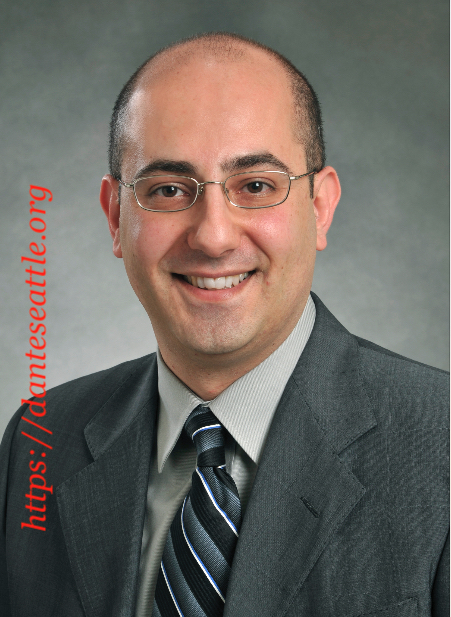 Giorgio is a native Italian who grew up in the outskirts of Milan. He holds various university degrees including a doctorate in aerospace engineering from the Georgia Institute of Technology. He works on engineering research and development projects in the fields of aircraft performance and commercial aviation. He became passionate about teaching and sharing his knowledge of Italy in response to the welcoming and inspiring interest in the Italian language and culture he witnessed and experienced while living in the United States. Throughout the years, Giorgio has taught Italian courses as well as privately tutored business professionals and students from various age groups.
Giorgio is a native Italian who grew up in the outskirts of Milan. He holds various university degrees including a doctorate in aerospace engineering from the Georgia Institute of Technology. He works on engineering research and development projects in the fields of aircraft performance and commercial aviation. He became passionate about teaching and sharing his knowledge of Italy in response to the welcoming and inspiring interest in the Italian language and culture he witnessed and experienced while living in the United States. Throughout the years, Giorgio has taught Italian courses as well as privately tutored business professionals and students from various age groups.
In his free time, Giorgio enjoys photography, hiking, history and mathematics, museums and fine arts, theatre performances, and traveling.
Email: giorgio@danteseattle.org
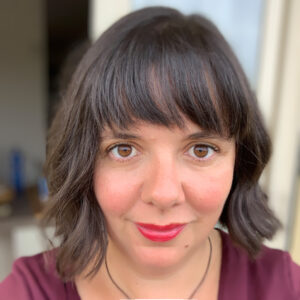 Gabriella Vagnoli was born in Pisa, Tuscany, home of the famous Leaning Tower. She grew up in a multicultural family thanks to her Brazilian mom and remembers teaching Italian for the first time as a child to her Brazilian cousins. She obtained a Laurea in English and Spanish Language and Literature at the Università degli Studi di Pisa and during her college years spent a year in the University of Reading, UK, studying mainly the works of Shakespeare. After obtaining a Certificate as a Teacher of Italian (DITALS II) at the Università per Stranieri di Siena, she has taught in a full immersion school in Florence, a children's full immersion program in Chicago and a Community College in Illinois.
Gabriella Vagnoli was born in Pisa, Tuscany, home of the famous Leaning Tower. She grew up in a multicultural family thanks to her Brazilian mom and remembers teaching Italian for the first time as a child to her Brazilian cousins. She obtained a Laurea in English and Spanish Language and Literature at the Università degli Studi di Pisa and during her college years spent a year in the University of Reading, UK, studying mainly the works of Shakespeare. After obtaining a Certificate as a Teacher of Italian (DITALS II) at the Università per Stranieri di Siena, she has taught in a full immersion school in Florence, a children's full immersion program in Chicago and a Community College in Illinois.
Besides teaching Italian, she has obtained a BFA in Illustration at Rocky Mountain College of Art and Design and is a published children's book illustrator.
Email: gabriella@danteseattle.org
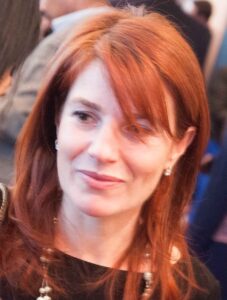 Tiziana was born and raised in Sardinia, a beautiful Italian island in the Mediterranean Sea. She has always been passionate about foreign languages and cultures, and studied French and German at the Scuola Superiore Interpreti e Traduttori in Milan, where she obtained her first Foreign Languages and Interpreter BA degree. She then pursued her MA in English and German Language and Literature at IULM, one of the most prestigious universities in Milan, Italy for Language and Communication studies.
Tiziana was born and raised in Sardinia, a beautiful Italian island in the Mediterranean Sea. She has always been passionate about foreign languages and cultures, and studied French and German at the Scuola Superiore Interpreti e Traduttori in Milan, where she obtained her first Foreign Languages and Interpreter BA degree. She then pursued her MA in English and German Language and Literature at IULM, one of the most prestigious universities in Milan, Italy for Language and Communication studies.
Tiziana moved to the US in 2000 and started working in the software industry, where she applied her linguistic skills and cultural knowledge to localization and testing projects. She also took on various leadership roles and managed teams of linguists and testers across different countries and time zones. Tiziana is passionate about teaching Italian and sharing her insights into the Italian culture and lifestyle. She has taught from beginner to advanced Italian courses for the most prestigious schools in the Pacific Northwest: The Dante Alighieri Society, Seattle Language Academy and Bellevue College. She also privately tutors American business professionals who want to learn or improve their Italian. She is currently working on her Spanish, as she enjoys learning new languages and cultures.
In her free time, Tiziana likes to read, hike. cook, travel, and spend time with her family and friends.
Email: tiziana@danteseattle.org
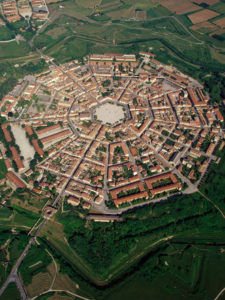 Laura was born in Palmanova, in Northern Italy, a star shaped fortress built by the Serenissima Republic of Venice to protect the territory from the invasions of the Hapsburg and the Ottoman Empires. She was raised speaking Italian, French and Friulano (her native Northern Italian dialect). Laura received a Laurea in Linguistics from the Università di Udine where she specialized in Spanish and English literature. Since then she has lived and worked in Holland, Switzerland, Spain, England, America, and Italy. In addition to teaching in our program, Laura is authorized to cover the role of intervistatrice in our PLIDA Examination Board.
Laura was born in Palmanova, in Northern Italy, a star shaped fortress built by the Serenissima Republic of Venice to protect the territory from the invasions of the Hapsburg and the Ottoman Empires. She was raised speaking Italian, French and Friulano (her native Northern Italian dialect). Laura received a Laurea in Linguistics from the Università di Udine where she specialized in Spanish and English literature. Since then she has lived and worked in Holland, Switzerland, Spain, England, America, and Italy. In addition to teaching in our program, Laura is authorized to cover the role of intervistatrice in our PLIDA Examination Board.
E-mail: lauracbolan@danteseattle.org
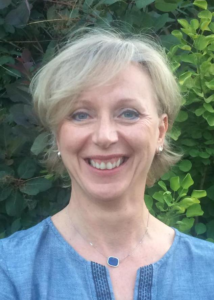 Francesca is an Italian native, born in Cremona, northern Italy. She holds a laurea in Biology from the University of Padua and Masters of Biology from Eastern Michigan University. She left Italy in 1994 and has lived in New Zealand and the United States. She has a passion for teaching her native language, as a way of maintaining and exploring the Italian language and culture with different eyes. She has taught privately and in many institutions to students of different proficiency levels groups. Francesca is interested in literature, art and design, and in her free time, she likes reading, cooking, and making ceramics.
Francesca is an Italian native, born in Cremona, northern Italy. She holds a laurea in Biology from the University of Padua and Masters of Biology from Eastern Michigan University. She left Italy in 1994 and has lived in New Zealand and the United States. She has a passion for teaching her native language, as a way of maintaining and exploring the Italian language and culture with different eyes. She has taught privately and in many institutions to students of different proficiency levels groups. Francesca is interested in literature, art and design, and in her free time, she likes reading, cooking, and making ceramics.
Email: francesca@danteseattle.org
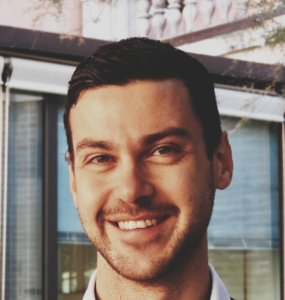 Damiano is a native of a small countryside town in Northern Italy, about 17 miles away from Padua, a city famous among other things for its university, the fifth-oldest surviving in the world. He received his B.A. and M.A. Cum Laude in Japanese language and culture from Ca’ Foscari University of Venice, while specializing in linguistics and translation. He lived in Japan for three and a half years, where he continued his studies and his sociolinguistic research on (im)politeness in language. While in Japan, he also started working as an Italian teacher, discovering his passion for conveying the beauty of the Italian language and culture abroad.
Damiano is a native of a small countryside town in Northern Italy, about 17 miles away from Padua, a city famous among other things for its university, the fifth-oldest surviving in the world. He received his B.A. and M.A. Cum Laude in Japanese language and culture from Ca’ Foscari University of Venice, while specializing in linguistics and translation. He lived in Japan for three and a half years, where he continued his studies and his sociolinguistic research on (im)politeness in language. While in Japan, he also started working as an Italian teacher, discovering his passion for conveying the beauty of the Italian language and culture abroad.
Email: damiano@danteseattle.org
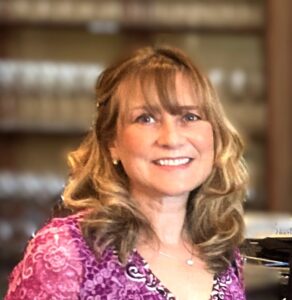 Nicla is a native of Napoli, Italy. She has a Laurea in Materie Letterarie (degree in humanities) and a Laurea in Pedagogia (degree in Education) from the Università degli Studi di Cassino. She earned her M.A in Italian and her PhD in Comparative Literature from the University of Washington. She has published articles and book chapters on gender and theater as well as politics and religion in Counter-Reformation Italy and in the last years, has been teaching Italian literature, language, and culture in different institutions. In addition to teaching in our program, Nicla is authorized to cover the role of esaminatrice and intervistatrice in our PLIDA Examination Board.
Nicla is a native of Napoli, Italy. She has a Laurea in Materie Letterarie (degree in humanities) and a Laurea in Pedagogia (degree in Education) from the Università degli Studi di Cassino. She earned her M.A in Italian and her PhD in Comparative Literature from the University of Washington. She has published articles and book chapters on gender and theater as well as politics and religion in Counter-Reformation Italy and in the last years, has been teaching Italian literature, language, and culture in different institutions. In addition to teaching in our program, Nicla is authorized to cover the role of esaminatrice and intervistatrice in our PLIDA Examination Board.
E-mail: nicla@danteseattle.org